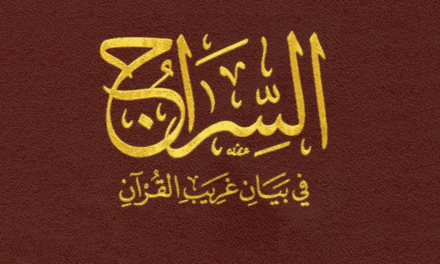In light of the Gaza and Ukrainian wars, we’ve selected vocabulary related to the theme of “war”, suited for the Elementary (A2) level.
| English | Arabic [Singular/مفرد] | Transliteration | Arabic [Plural/جمع] | Transliteration |
|---|---|---|---|---|
| war | حَرْبٌ | ḥarb | حُرُوبٌ | ḥurūb |
| hospital | مُستَشْفَى | mustashfā | مُستَشْفَيَاتٌ | mustashfayāt |
| patient | مَرِيضٌ | marīḍ | مَرْضَى | marḍā |
| food | طَعَامٌ | ṭaʿām | أَطْعِمَةٌ | aṭʿimah |
| water | مَاءٌ | mā’ | مِيَاهٌ | miyā’h |
| tent | خَيْمَةٌ | khaymah | خِيَامٌ | khiyām |
| family | عَائِلَةٌ | ʿā’ilah | عَائِلاتٌ | ʿā’ilāt |
| house | مَنْزِلٌ | manzil | مَنَازِلُ | manāzil |
| afraid | خَائِفٌ | khā’if | خَائِفُونَ | khā’ifūn |
| school | مَدْرَسَةٌ | madrasah | مَدَارِسُ | madāris |
| ambulance | سَيَّارَةُ اِسْعَافٍ | sayyārat ‘isʿāf | ||
| tank | دَبَّابَةٌ | dabābah | دَبَّابَاتٌ | dabābāt |
| missile | صَارُوخٌ | ṣārūkh | صَوَارِيخُ | ṣawārīkh |
| help | مُسَاعَدَةٌ | musā‘adah | مُسَاعَدَاتٌ | musā‘adāt |
| area | مَنْطِقَةٌ | manṭiqah | مَنَاطِقُ | manāṭiq |
| civilian | مَدَنِيٌّ | madanī | مَدَنِيُّونَ | madaniyyūn |
| injured | مَجْرُوحٌ | majrūḥ | جَرْحَى | jarḥā |
| justice | عَدَالَةٌ | ‘adāla | ||
| education | التَّعْلِيم | al-ta‘līm |
Quizlet flashcard: https://quizlet.com/gb/931627277/theme-war-flash-cards/?i=28xyiz&x=1jqt
Here are some useful example sentences for each of the words above.
| Example | المثال | Translation الترجمة |
|---|---|
| الحَرْبُ مُخِيفَةٌ. | The war is scary. |
| هُنَاكَ مُسْتَشْفَيَاتٌ كَثِيرَةٌ فِي المَدِينَةِ. | There are many hospitals in the city. |
| هَذَا الرَّجُلُ مَرِيضٌ. | This man is sick. |
| أَنَا آكُلُ طَعَامًا لَذِيذًا. | I am eating delicious food. |
| المَاءُ مُهِمٌّ لِلْحَيَاةِ. | Water is important for life. |
| نَصَبْنَا خَيْمَةً فِي الغَابَةِ. | We set up a tent in the forest. |
| أَنَا أَعِيشُ مَعَ عَائِلَتِي. | I live with my family. |
| مَنْزِلِي جَمِيلٌ. | My house is beautiful. |
| الأَطْفَالُ خَائِفُونَ مِنَ الصَّوَارِيخِ. | The children are afraid of the rockets. |
| أَذْهَبُ إِلَى المَدْرَسَةِ كُلَّ يَوْمٍ. | I go to school every day. |
| جَاءَتْ سَيَّارَةُ اِسْعَافٍ بِسُرْعَةٍ. | An ambulance arrived quickly. |
| الدَبَّابَةُ تَسِيرُ فِي الشَّارِعِ. | The tank is moving in the street. |
| سَمِعْتُ صَوْتَ صَارُوخٍ فِي اللَّيْلِ. | I heard the sound of a rocket at night. |
| أَحْتَاجُ إِلَى مُسَاعَدَةٍ فِي الدِّرَاسَةِ. | I need help with my studies. |
| أَسْكُنُ فِي مَنْطِقَةٍ هَادِئَةٍ. | I live in a quiet area. |
| المَدَنِيُّونَ يُرِيدُونَ السَّلَامَ. | The civilians want peace. |
| يُعَالِجُ الطَّبِيبُ الجَرْحَى. | The doctor treats the wounded. |
| يَجِبُ أَنْ تَكُونَ هُنَاكَ عَدَالَةٌ لِلْجَمِيعِ. | There should be justice for everyone. |
| التَّعْلِيمُ مُهِمٌّ لِلْمُسْتَقْبَلِ. | Education is important for the future. |
Key tips for learning vocabulary:
- Memorise the vocabulary, there is no way around it! It gets easier with time and practice.
- When memorising nouns and adjectives, make sure you learn the plural forms.
- When learning a verb, learn the past, present and verbal noun forms. (Bonus: learn the imperative (giving orders) form. E.g. جَلَسَ، يَجْلِسُ، اِجْلِسْ/جُلوسٌ (he sat, he sits, sit!/sitting). This will accelerate your learning and help you make less mistakes. It’s tiresome in the beginning, but you will get used to it and thank yourself later!
- Put your vocabulary into context by putting them into example sentences which makes the meaning clear. Check with a teacher if the sentences are correct and go through them when you’re memorising the vocabulary, this will help you remember the word better. Alternatively, you can look for ready-made sentences (e.g. this is easy if you’re taking words from a reading comprehension text)
- Example:
[1] I arrived at the party late
[2] The party had finished because I arrived late - The second sentence is a more meaningful representation of the word “late” because if I were to read the sentence without knowing the meaning of “late”, I could give a reasonable guess as to what it meant.
- Example:


![Theme: War and Conflict [A2 Vocabulary]](https://www.explorearabic.org/wp-content/uploads/2023/05/WP-Learning-lab-images-440x264.png)

![Theme: War and Conflict [A2 Vocabulary]](https://www.explorearabic.org/wp-content/uploads/2023/05/WP-Learning-lab-images-1280x640.png)



![Theme: War and Conflict [A2 Vocabulary]](https://www.explorearabic.org/wp-content/uploads/2023/05/WP-Learning-lab-images-150x150.png)

